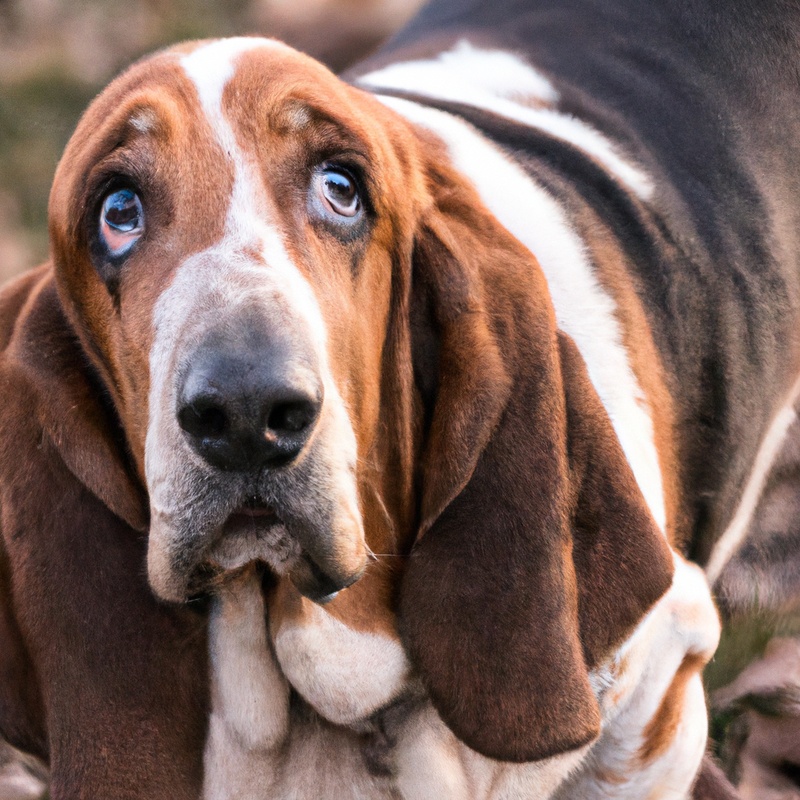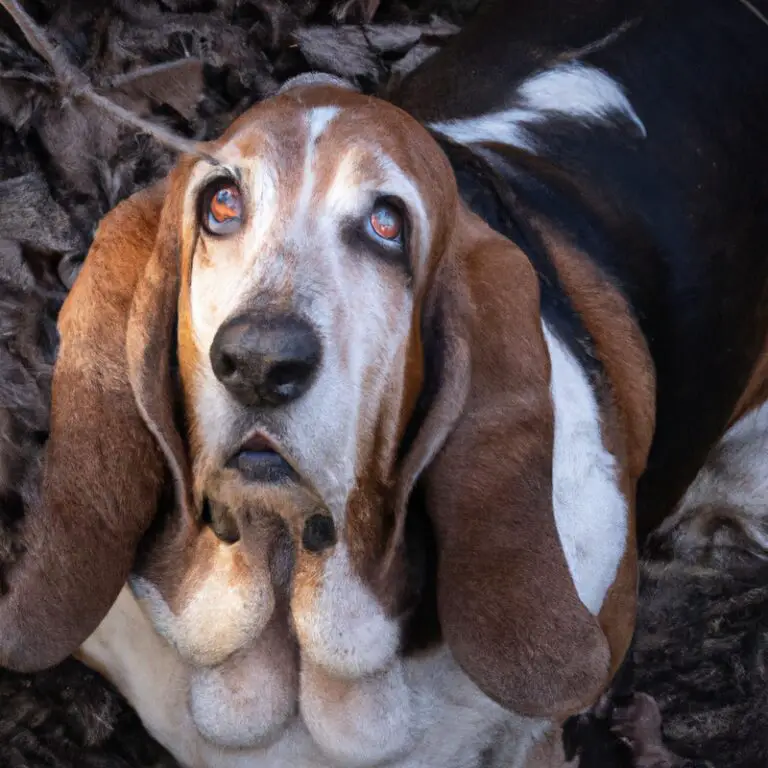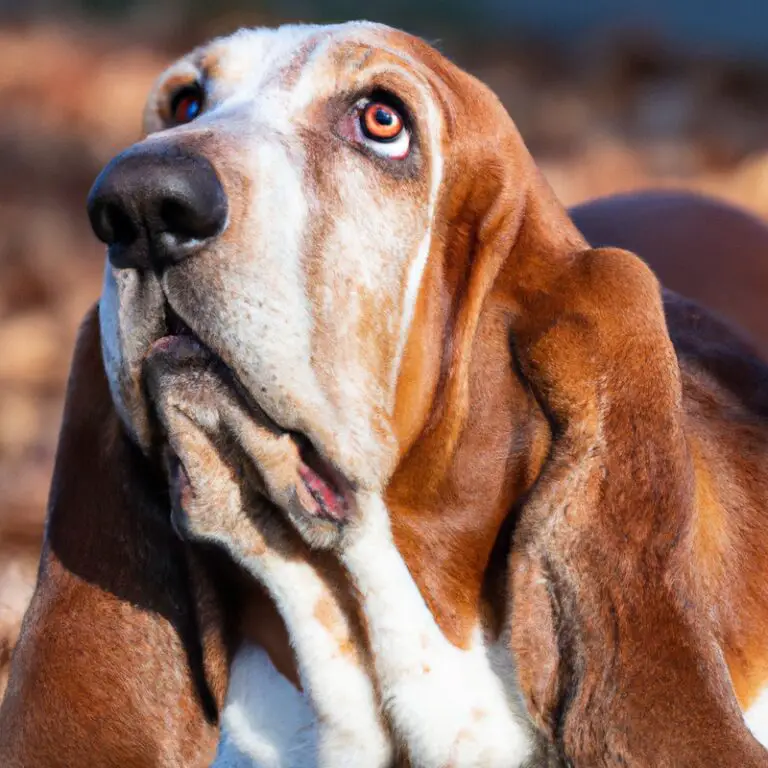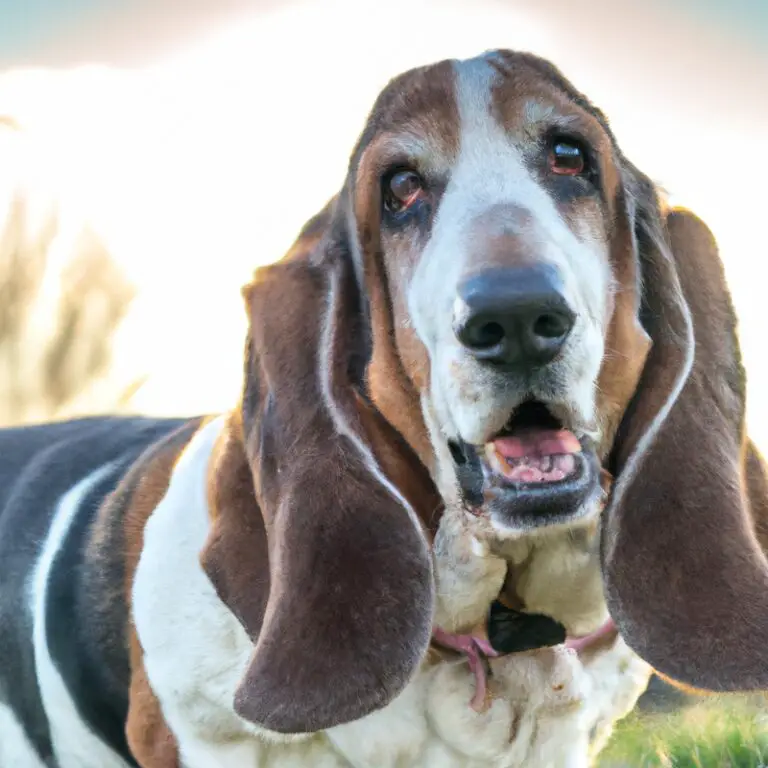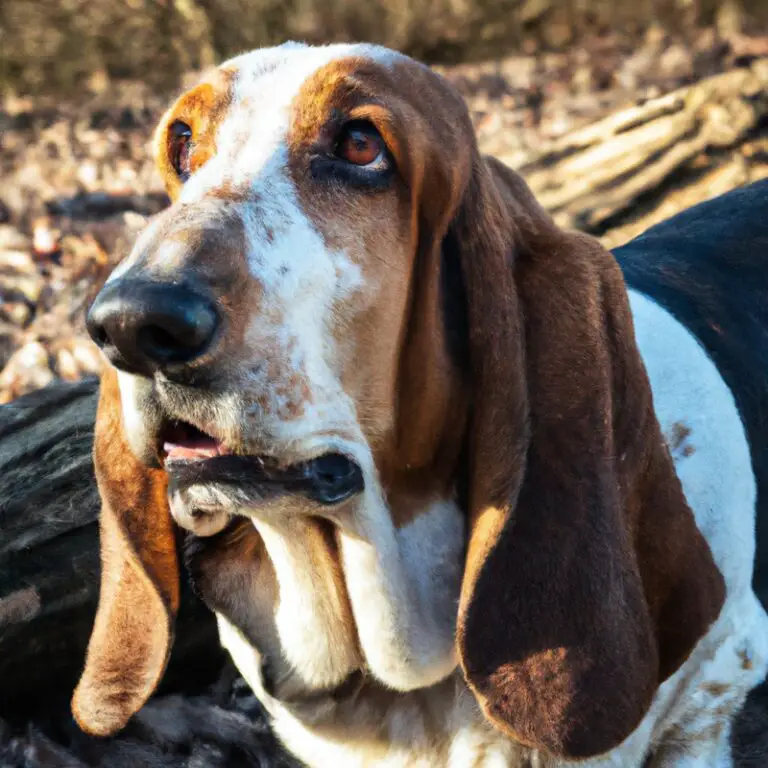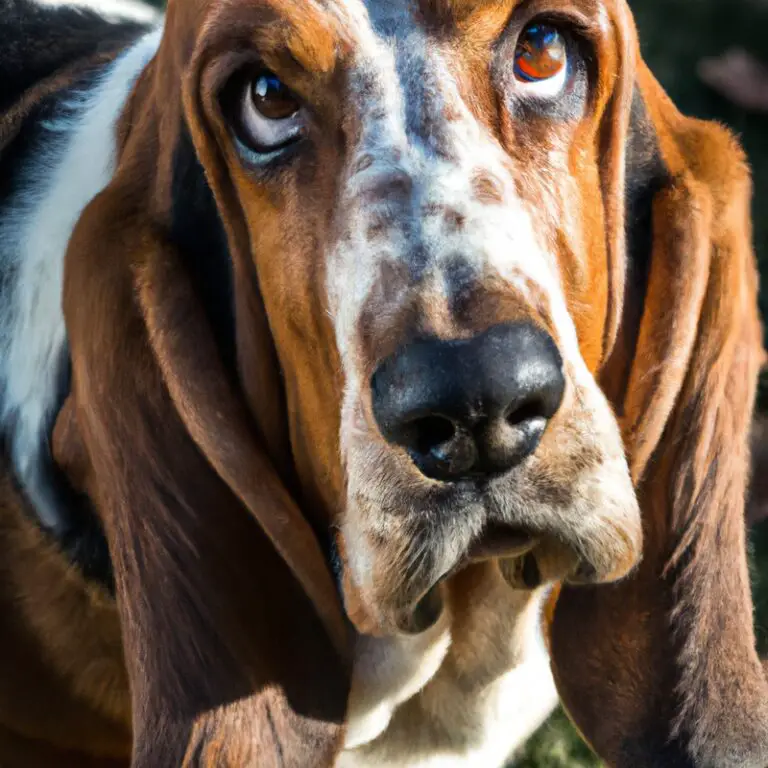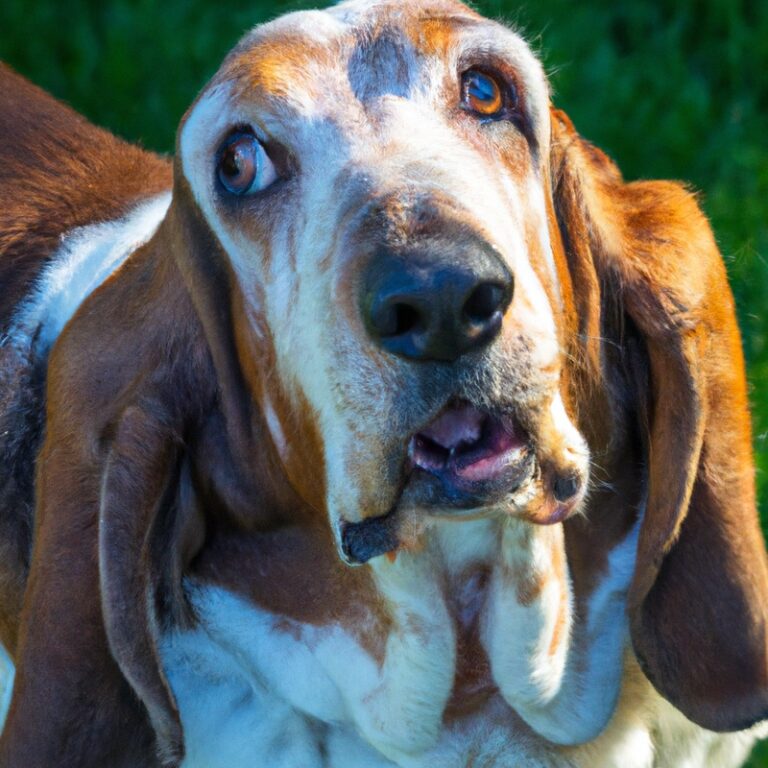How Do Basset Hounds React To Being Left Alone For An Extended Period Of Time?
Key Takeaways:
- Basset Hounds may experience separation anxiety when left alone for long durations.
- They are prone to exhibiting behaviors such as howling, excessive barking, or destructive chewing when left alone for extended periods.
- Proper training, mental stimulation, and gradually increasing alone time can help alleviate their distress.
- Seeking professional help or considering alternative options, like dog daycare or hiring a dog walker, may be beneficial for the well-being of Basset Hounds left alone for extended periods.
Have you ever wondered how your lovable Basset Hound reacts when you leave them alone for a long period of time?
Well, I’ve got some insights for you! As a devoted dog owner and an expert in canine behavior, I’ve discovered that Basset Hounds have a unique temperament that can influence their response to extended periods of solitude.
In this article, we’ll explore their nature, the signs of separation anxiety to watch out for, and the effects of being alone for too long.
I’ll also share practical tips and training techniques to help your Basset Hound cope with being left alone.
So, let’s dive in and uncover the secrets to keeping your furry friend happy and content, even when you can’t be by their side.
| Scenario | Reaction |
| Left alone for a short period of time | May experience mild separation anxiety, but generally calm and adjust quickly |
| Left alone for a few hours | May become restless and display signs of loneliness or boredom |
| Left alone for half a day | Can become anxious, bark excessively or howl, may chew or scratch furniture, display signs of distress |
| Left alone for a full day | High likelihood of experiencing extreme anxiety, may exhibit destructive behavior, excessive barking or howling, may refuse to eat or drink |
| Left alone for multiple days | Severe anxiety, potential for behavioral issues like aggression, excessive barking or howling, may harm themselves or surroundings |
| Left alone with proper preparation | Basset Hounds can learn to be alone for a reasonable period, with training, mental stimulation, and ensuring their physical needs are met |
How Basset Hounds React to Being Left Alone
Understanding Basset Hound’s Nature and Temperament
Basset Hounds are known for their gentle and laid-back nature.
They are generally friendly and sociable dogs who enjoy the company of their owners and other pets.
Bassets have a strong sense of smell and are often described as scent hounds.
They have a tendency to follow their noses, so it’s important to keep them on a leash when outside.
These dogs also have a stubborn streak, which can sometimes make training a bit challenging.
However, with patience and positive reinforcement, they can learn and obey commands.
Basset Hounds are generally good with children and make great family pets.
They do require regular exercise and mental stimulation to keep them happy and healthy.
Recognizing Separation Anxiety in Basset Hounds
Separation anxiety is a common issue in Basset Hounds when they are left alone.
Recognizing the signs is important for their well-being.
Look out for excessive barking, destructive behavior, panting, and pacing.
They may also exhibit behaviors like trying to escape or urinating indoors.
Pay attention to any changes in their behavior when you’re about to leave or when you return home.
If you notice these signs, it’s likely that your Basset Hound is experiencing separation anxiety and may need additional support and training to help them cope.
Effects of Extended Periods of Alone Time on Basset Hounds
Extended periods of alone time can have negative effects on Basset Hounds. They are social dogs and thrive on human companionship.
When left alone for too long, they may become anxious, stressed, or even develop separation anxiety.
Common behaviors associated with this include excessive barking, destructive chewing, and house soiling. It is important to provide them with mental stimulation and a comfortable environment to help alleviate these effects.
Additionally, exploring alternatives such as doggy daycare or getting another companion can also be beneficial for their well-being.
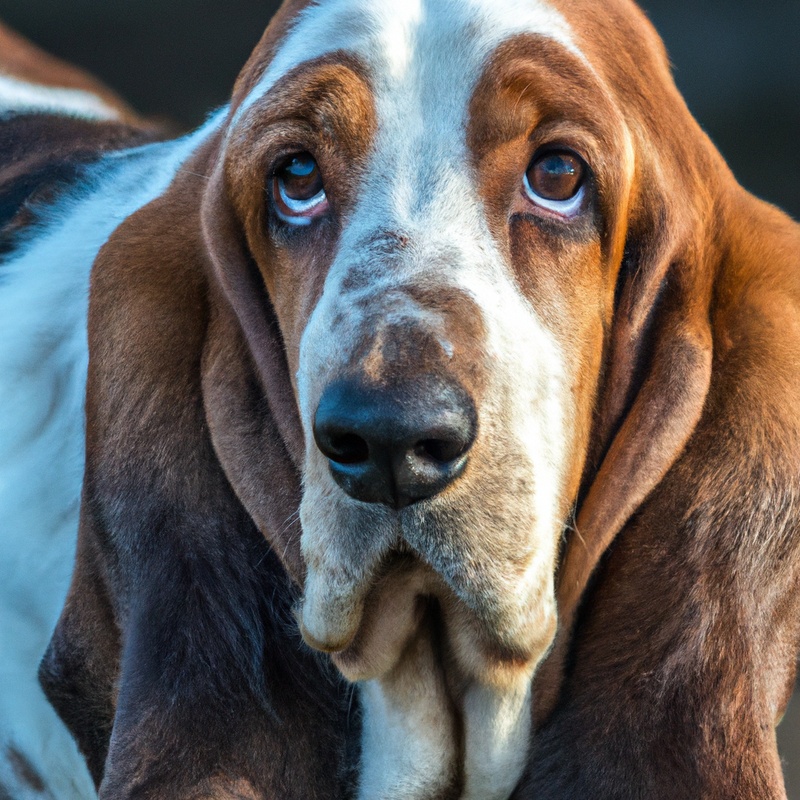
Ways to Help Basset Hounds Cope with Being Left Alone
To help Basset Hounds cope with being left alone, it’s important to create a comfortable environment for them. Ensure they have a cozy, safe space with their bedding and favorite toys.
Establishing a routine and providing mental stimulation are also key.
Stick to a consistent schedule for feeding, exercise, and playtime. Consider using interactive toys or puzzles to keep their minds engaged.
If possible, doggy daycare or hiring a dog sitter can provide companionship for your Basset Hound.
Additionally, crate training can offer added security and create a sense of den-like comfort for them.
Creating a Comfortable Environment
To create a comfortable environment for your Basset Hound when they’re left alone, consider the following:
- Provide a designated space: Set up a cozy area with your dog’s bed, toys, and blankets where they feel safe and secure.
- Reduce noise: Minimize loud sounds from appliances or outside by closing windows or using white noise machines.
- Leave a familiar scent: Leave an item with your scent, like a shirt or towel, to help comfort your Basset Hound in your absence.
- Consider natural light: Open curtains or blinds to let in natural light, which can have a calming effect on your dog.
- Temperature control: Ensure the room is at a comfortable temperature, neither too hot nor too cold.
Creating a comfortable environment can help alleviate stress and anxiety for your Basset Hound when they’re home alone.
Establishing a Routine and Providing Mental Stimulation
Establishing a routine is important for basset hounds to feel secure and know what to expect.
This includes consistent feeding, exercise, and bathroom breaks.
Providing mental stimulation is also crucial to prevent boredom and destructive behavior.
Interactive toys, puzzle games, and obedience training can help keep their minds engaged.
Incorporating both routine and mental stimulation into their daily lives will help basset hounds feel happier and more content when left alone for extended periods of time.
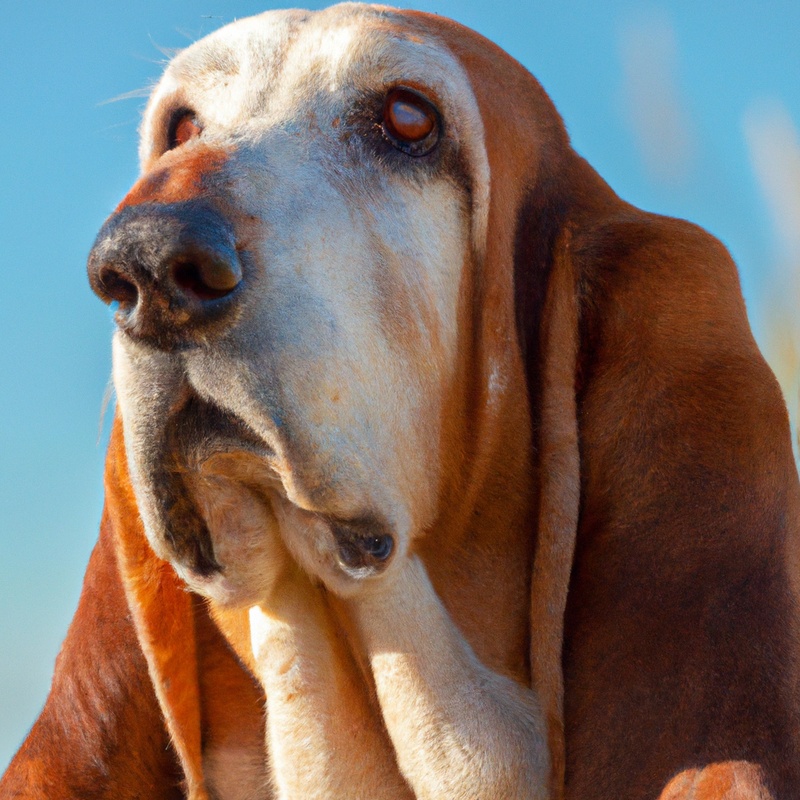
Considering Doggy Daycare or Dog Sitters
If you find that your Basset Hound struggles with being left alone for extended periods of time, considering doggy daycare or hiring a dog sitter could be a great option.
Doggy daycare facilities provide a safe and stimulating environment where your dog can socialize and play with other dogs under supervised care.
Hiring a dog sitter allows your Basset Hound to stay at home where they feel comfortable while still receiving attention and care.
Both options can help alleviate separation anxiety and ensure your Basset Hound is well taken care of when you can’t be there.
Introducing Crate Training for added security
If you’re looking for a way to provide added security for your Basset Hound while they are left alone, crate training can be a great option. By introducing crate training, you can create a safe and comfortable space for your dog when you’re not around.
This can help alleviate any anxiety they may feel and prevent destructive behavior.
Make sure to choose an appropriate crate size and gradually introduce your Basset Hound to the crate using positive reinforcement. Always ensure that the crate is a positive and comfortable space for your furry friend.

Training Techniques for Reducing Separation Anxiety
Reducing separation anxiety in Basset Hounds can be achieved through effective training techniques. Gradual separation training is one method, where you start by leaving the hound alone for short periods and gradually increasing the duration.
Implementing counterconditioning involves associating being alone with positive experiences, such as treats or toys, to change their emotional response.
Seeking professional help from a certified dog trainer or behaviorist can also provide valuable guidance and support in reducing separation anxiety. With consistent training, patience, and understanding, separation anxiety can be minimized for your Basset Hound.
Gradual Separation Training
Gradual separation training can be a helpful technique for Basset Hounds who struggle with being left alone. The key is to gradually increase the amount of time that the dog spends alone, starting with short periods and building up from there.
This helps the dog become more comfortable with being alone and reduces feelings of anxiety.
It’s important to create a safe and comfortable environment for the dog during this training, and to provide plenty of mental stimulation when they are alone. Seeking professional help can be beneficial if needed.
Implementing Counterconditioning
Counterconditioning is a helpful technique for Basset Hounds dealing with separation anxiety. The goal is to change their emotional response to being left alone by pairing it with positive experiences.
One way to do this is by giving them a special treat or toy only when they are left alone.
Gradually increase the time you leave them alone while providing these rewards. This way, they start to associate being alone with something enjoyable.
Professional help might be needed in severe cases.
Seeking Professional Help if Needed
If you’ve tried various techniques to help your Basset Hound cope with being alone for extended periods and haven’t seen much improvement, it may be time to seek professional help.
A qualified dog trainer or animal behaviorist can assess your dog’s specific situation and provide tailored advice or strategies to address separation anxiety.
They can guide you through training techniques, recommend behavioral modifications, or suggest medications if necessary.
Remember, seeking professional help can make a significant difference in improving your Basset Hound’s well-being and your peace of mind.
Alternatives to Extended Alone Time for Basset Hounds
If you’re concerned about leaving your Basset Hound alone for extended periods, there are alternatives to consider.
One option is providing exercise and interaction opportunities before and after leaving.
Taking your dog for a walk or engaging in playtime can help keep them physically and mentally stimulated.
Interactive toys and puzzles can also keep them occupied while you’re away.
Additionally, getting another companion for your Basset Hound can provide them with companionship during the times you’re not there.
These alternatives can help alleviate their boredom and anxiety when left alone.
Considering Exercise and Interaction Opportunities
One of the key ways to help your Basset Hound cope with being left alone for extended periods is by considering exercise and interaction opportunities. These dogs have a moderate exercise requirement, so it’s important to ensure they get enough physical activity and mental stimulation.
Take them for daily walks, engage them in play sessions, and provide interactive toys or puzzles to keep them occupied.
Additionally, consider socializing them with other dogs or humans to fulfill their need for companionship. Remember, a tired and mentally stimulated Basset Hound is more likely to feel content and relaxed when left alone.
Engaging Basset Hounds in Interactive Toys and Puzzles
To engage your Basset Hound in interactive play, consider using toys and puzzles specifically designed for them. These toys can keep them mentally stimulated and entertained while you are not around.
Look for toys that require problem-solving or toys that dispense treats when manipulated.
Puzzle toys that hide treats inside can also be a great way to keep your Basset Hound entertained and mentally stimulated. Experiment with different toys and puzzles to find what works best for your furry friend!
Getting Another Companion for Your Basset Hound
If your Basset Hound is struggling with being left alone for extended periods, getting another companion can be a great solution. Having a furry friend to keep them company can help alleviate feelings of loneliness and separation anxiety.
However, it’s important to consider your Basset Hound’s temperament and introduce potential new companions gradually, ensuring they get along well.
Bringing home a compatible companion can provide your Basset Hound with the companionship and mental stimulation they need when you’re not around.
Final Verdict
Basset Hounds are highly social and sensitive dogs, prone to experiencing separation anxiety when left alone for extended periods. This can manifest in destructive behavior and excessive barking.
To help them cope, it is important to create a comfortable environment, establish a routine, and provide mental stimulation.
Consider doggy daycare or sitters, and introduce crate training for added security. Training techniques such as gradual separation and counterconditioning can also be effective.
Remember, alternatives to extended alone time, such as exercise, interaction opportunities, and getting another companion, can greatly improve their well-being.
Trust in these strategies to help your Basset Hound thrive and feel secure even when you’re away.

